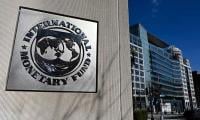Economist Dr Kaiser Bengali opined on Saturday that the inflation rate in the country would rise to 20 percent in the coming months due to the policies of the government under which it had dealt with the International Monterey Fund.
Bengali was giving a lecture on Pakistan’s recent $6billion bailout deal with the IMF at the National Trade Union Federation office. It was jointly organised by the NTUF and the Home- Based Women Workers Federation for the people from working-class backgrounds.
“The government has already gone bankrupt,” he said, explaining that it did not have dollars in its foreign exchange reserves nor did it seem to overcome the trade deficit challenge. “Our exports are of $24billion against our imports of $60billion.”
He said that more people would lose their jobs and the inflation would go up because the government surrendered before the IMF to seek the bailout package. “The IMF has no sympathy with the public. It, like all the banks, is only interested in getting its money back.”
He said that the current government’s practices and policies were similar to those of General Pervez Musharraf’s government. He said that the then prime minister and finance minister were brought in from aboard, so were the finance minister and the head of the State Bank of Pakistan by this government.
He suggested that when a company which owes to banks go bankrupt, the banks take over that entity. In the case of Pakistan, he added, similar is happening as the IMF has put its representatives in the key positions to recover its money.
Criticising the government, he said that there were around 14 to 15 ministries which were unnecessary. He gave the example of one national harmony ministry and wondered what its significance was. He said that instead of cutting its own expenses, the government was putting burden on the public.
Citing a research, he said that people tended to drink tea instead of having a proper meal because it would cost them more. He said that the elites, on the other hand, had been unaffected by the inflation. “Go to a supermarket in a posh area, you will have to look for local products if there are any on the shelves.”
He said that to overcome the crisis, trade deficit was needed to be reduced. However, he said, the government policies were unfriendly to encourage exports and discourage imports. “One basic rule of imposing duty on something is that that it should be put on raw material rather than a finished product. It is total opposite here.”
Referring to an example of paper, he said that due to a hefty duty imposed on the import of paper on the recommendation of a group of local paper manufacturers, the Urdu textbooks were now coming in from Malaysia, Indonesia and other Southeast Asian countries.
This general view shows the commercial district of Pakistan's port city of Karachi. — AFP/FileDastangoiT2F is...
Representational image of a house on fire. — AFP/FileA thread factory on the Super Highway caught fire on Thursday....
This image shows the KWSC logo. — Facebook/Karachi Water & Sewerage corporation/FileThe Karachi Water and Sewerage...
Sindh Chief Secretary Syed Asif Hyder Shah gestures during a meeting on April 2, 2024. — Facebook/Chief Secretary...
This image shows the building of the Sindh High Court in Karachi. — Facebook/Sindh High Court Bar Association...
The Sindh High Court building in Karachi. — Facebook/The Sind High Court, Karachi/File HYDERABAD: A Sindh High...







